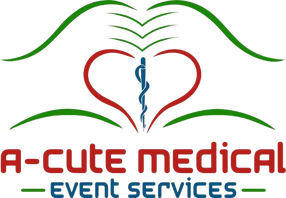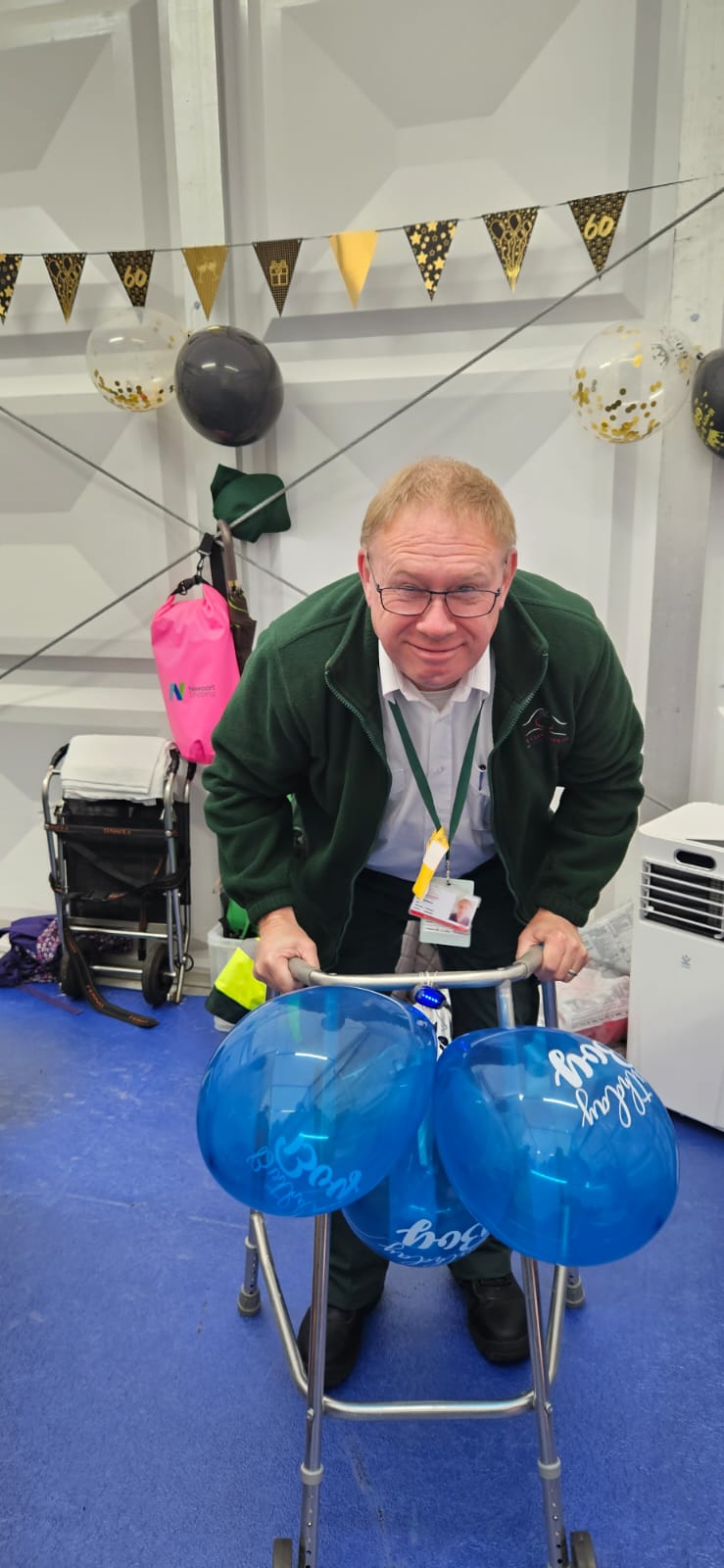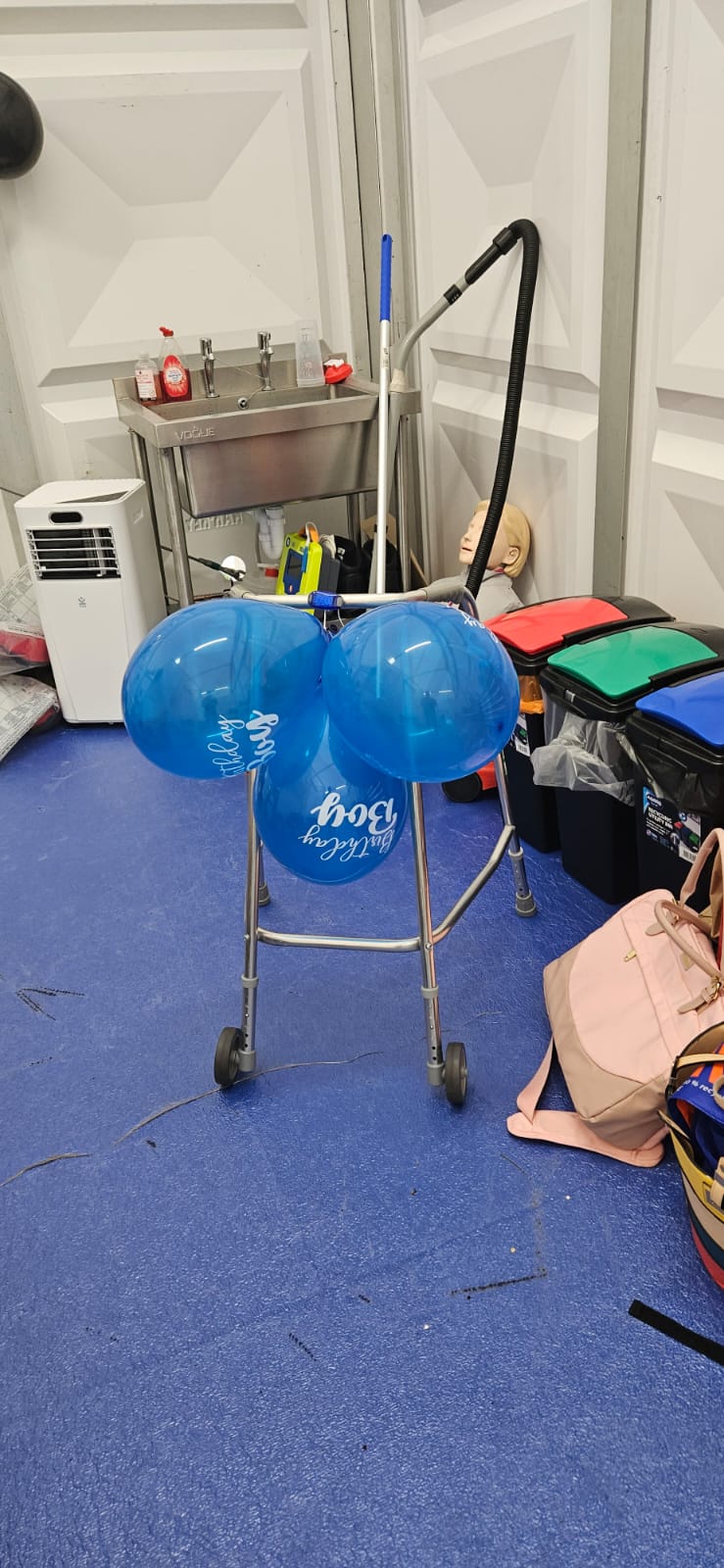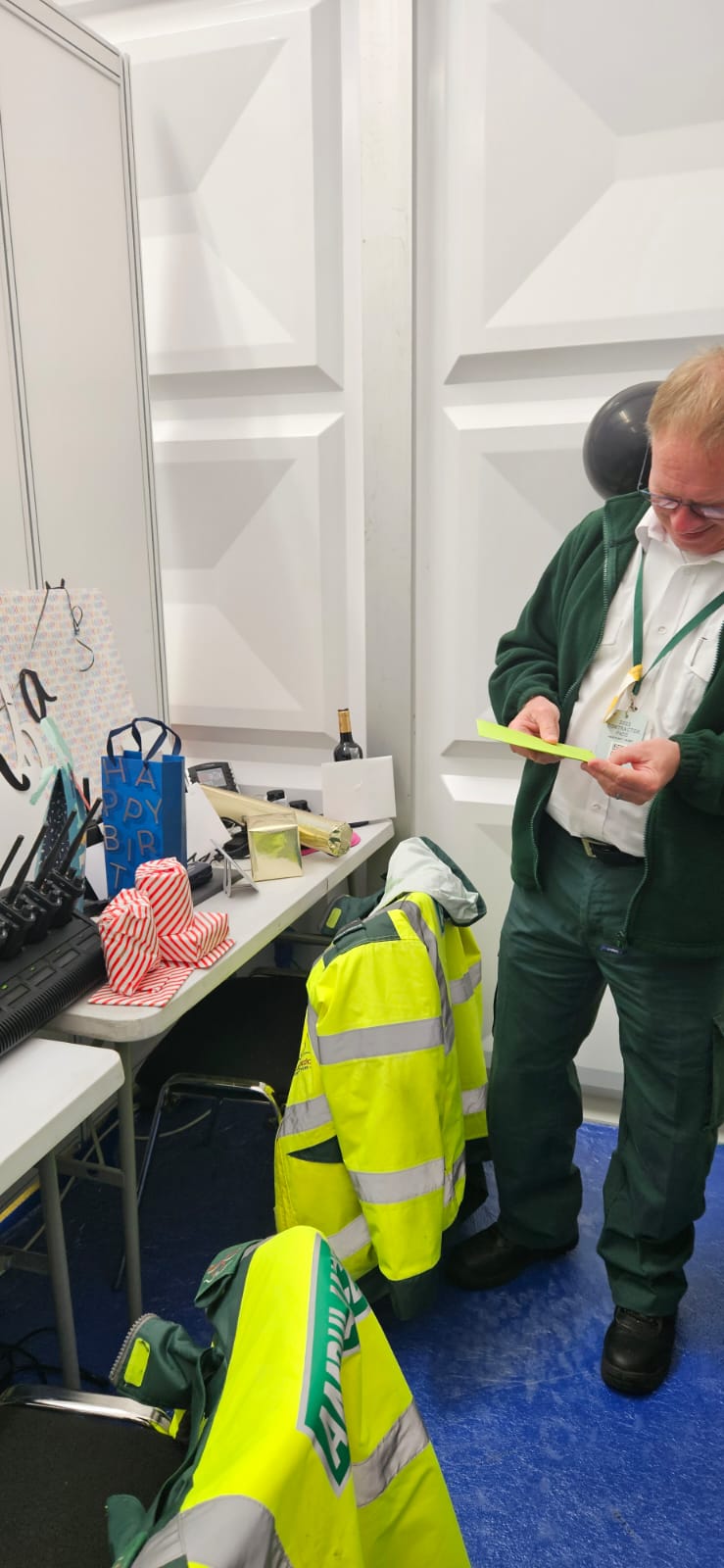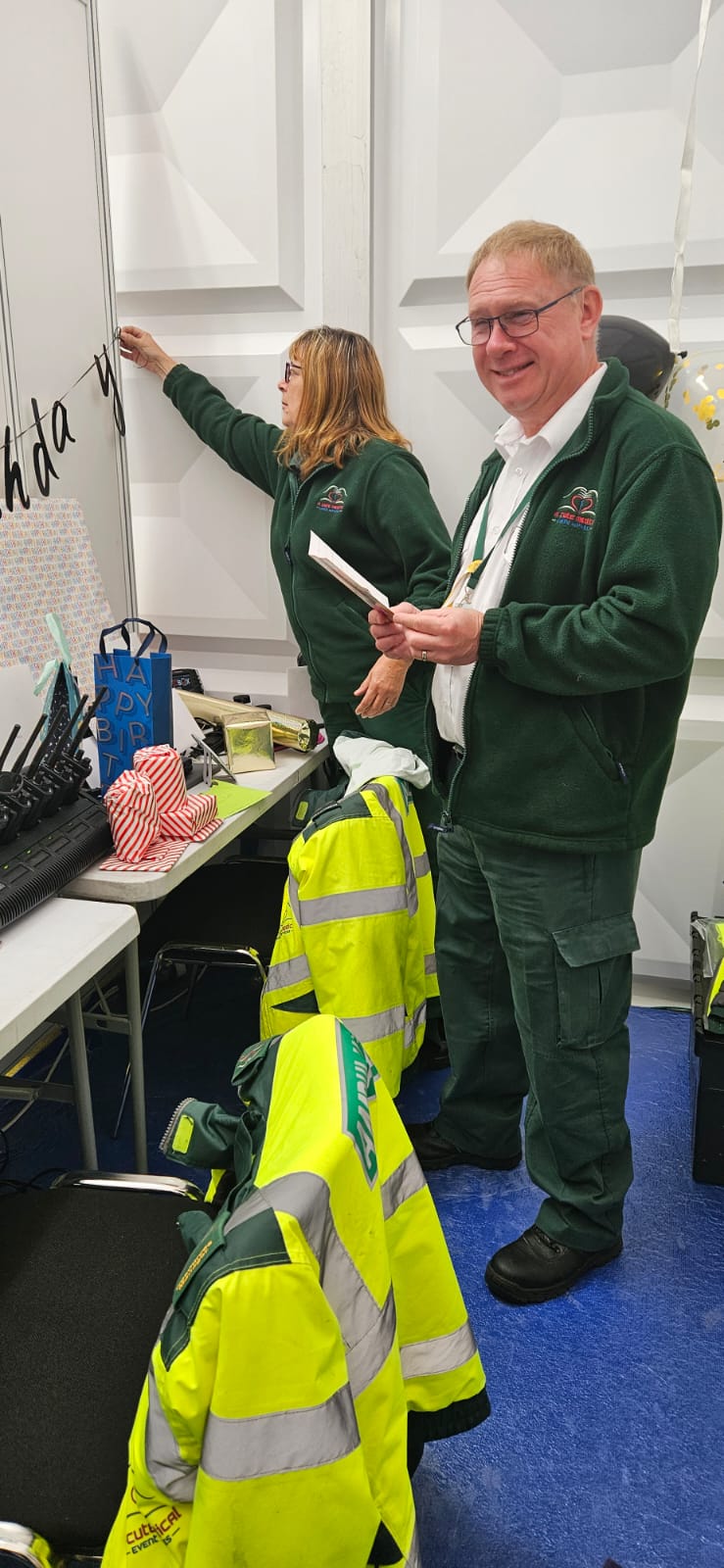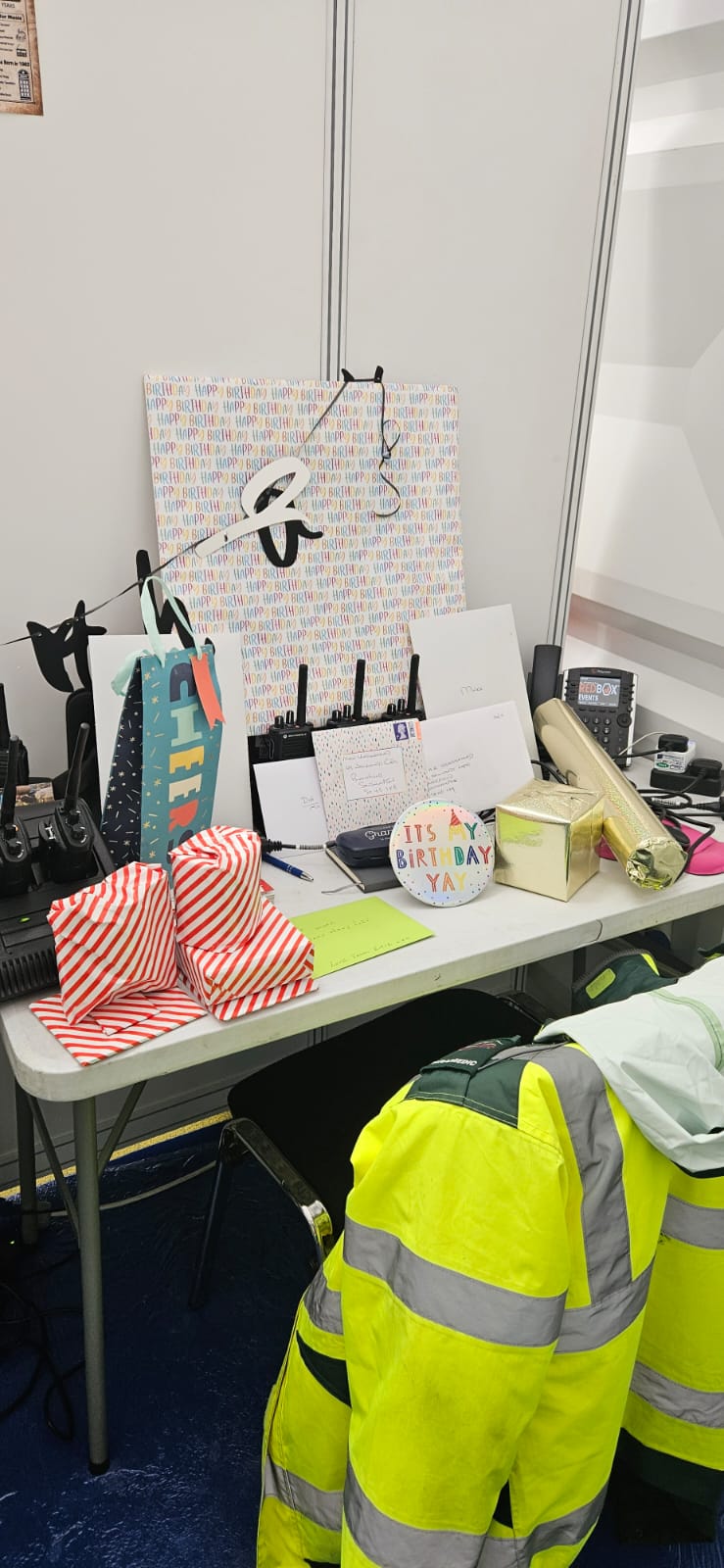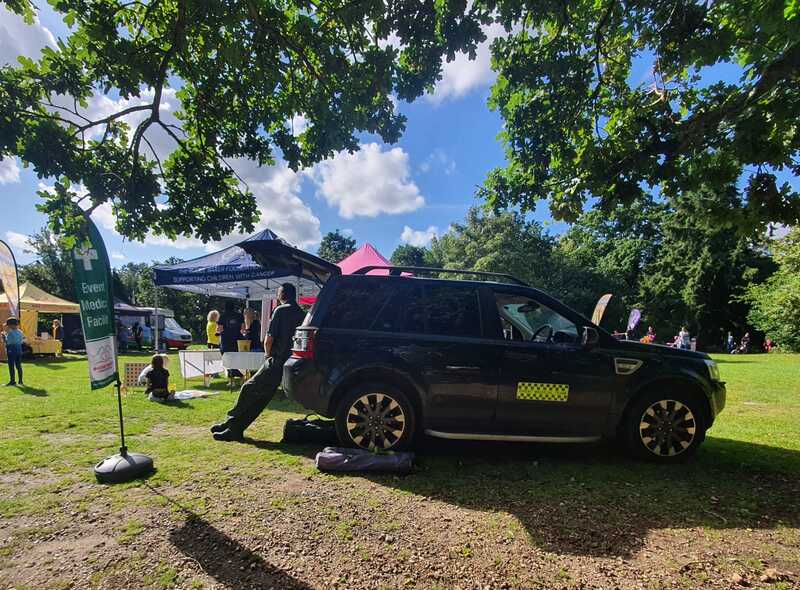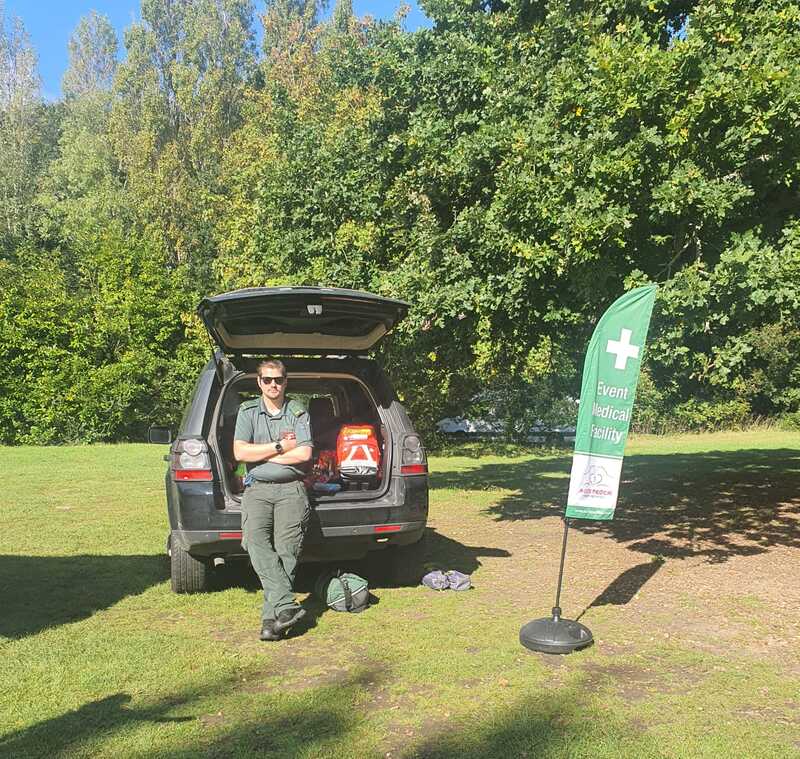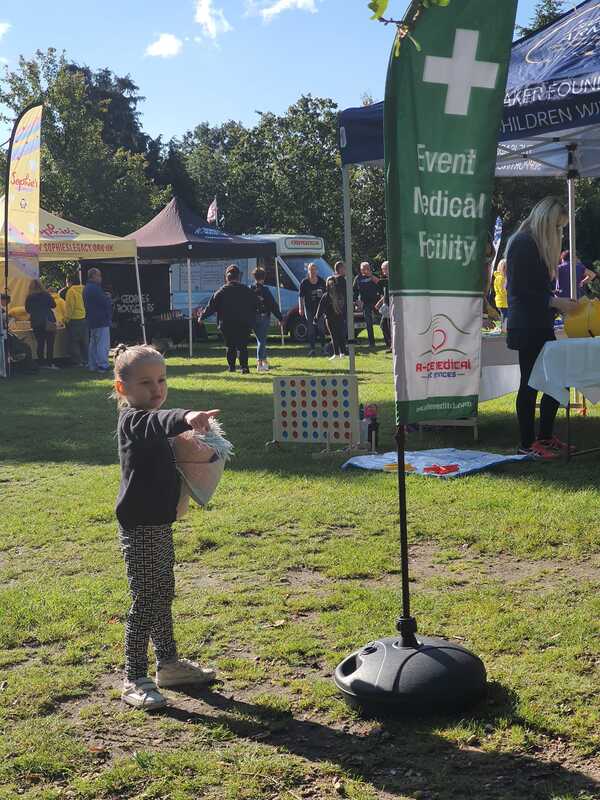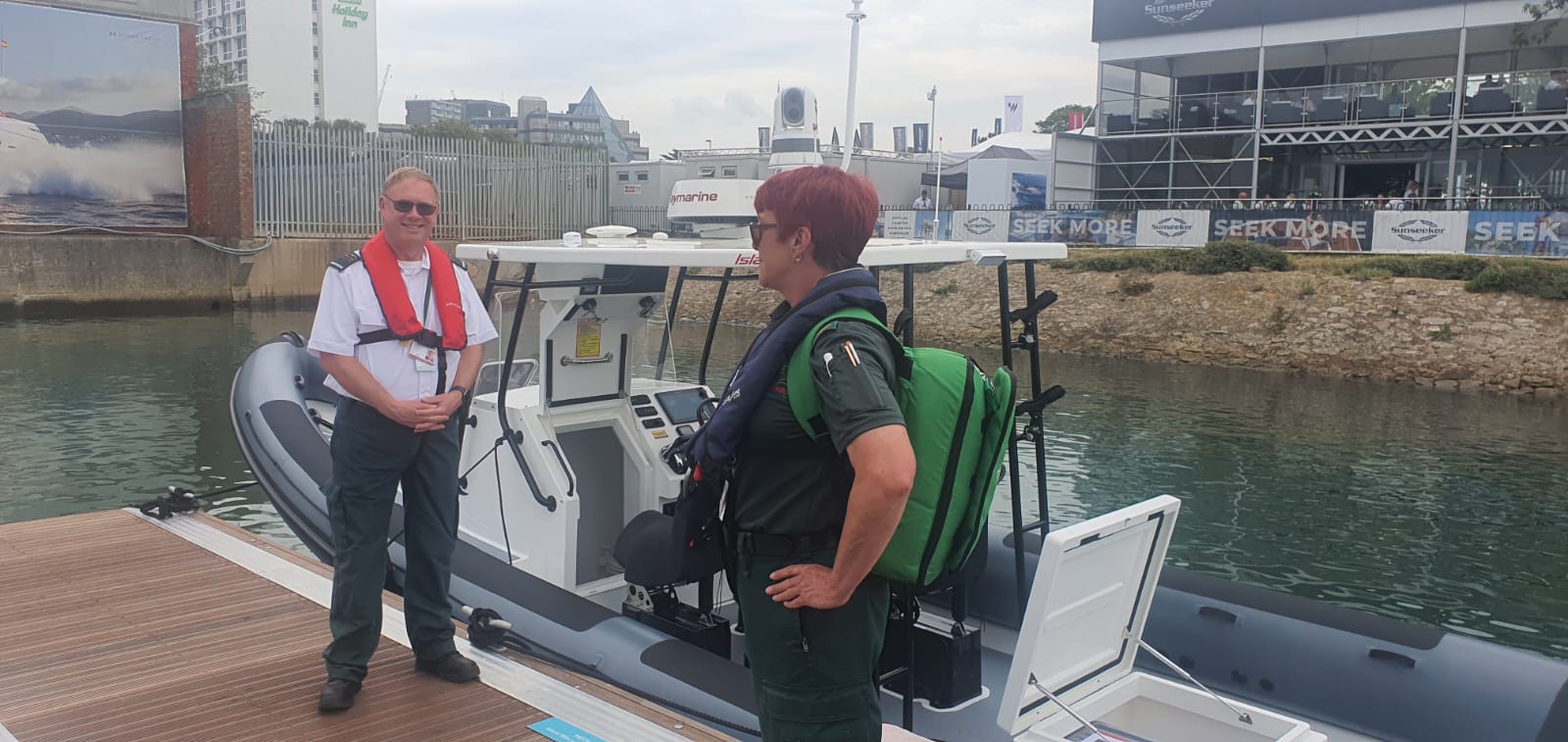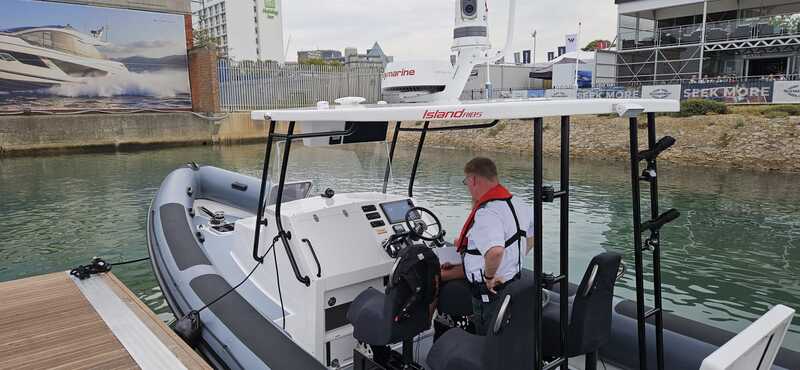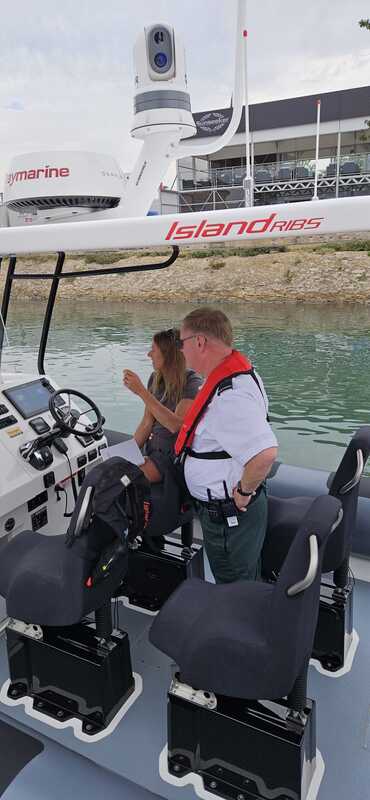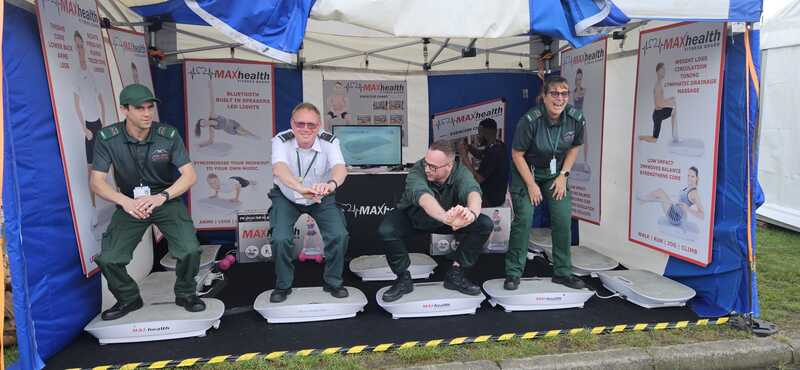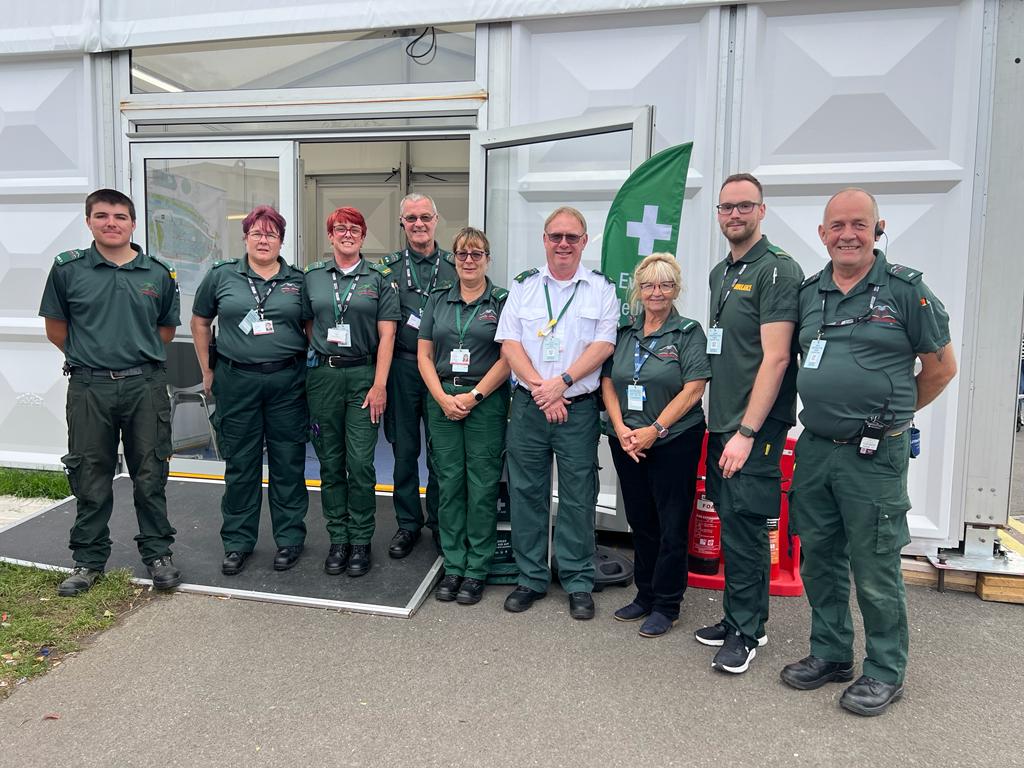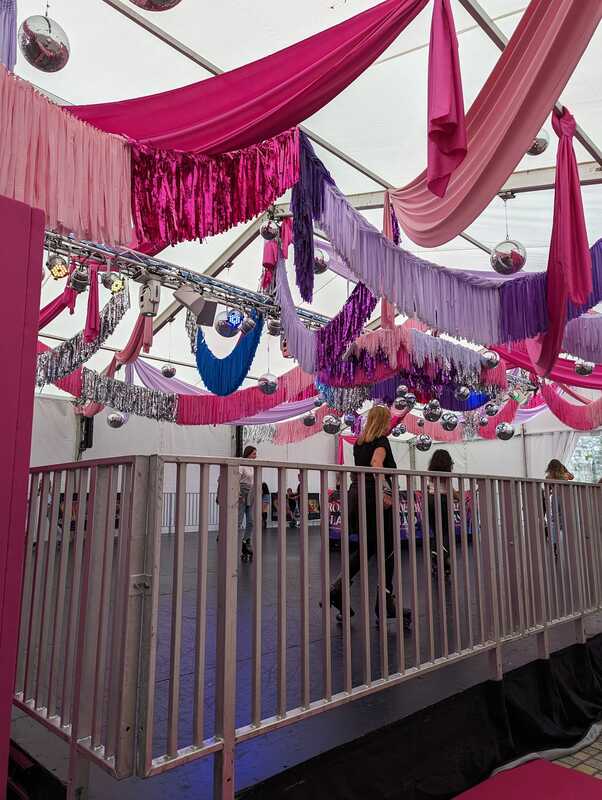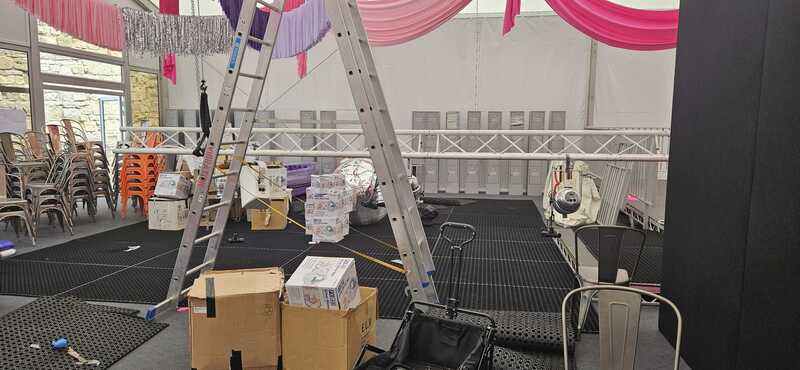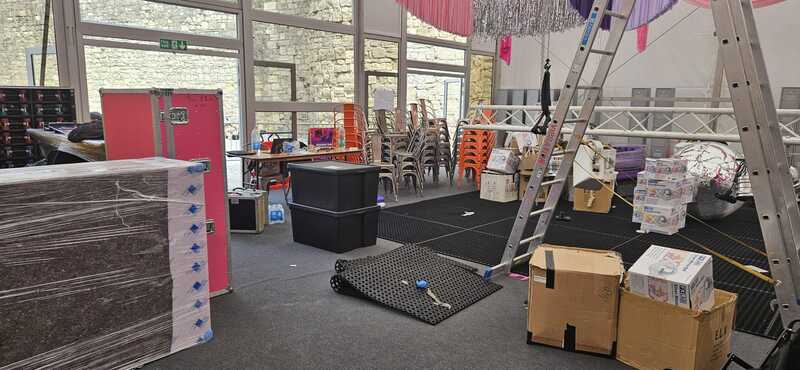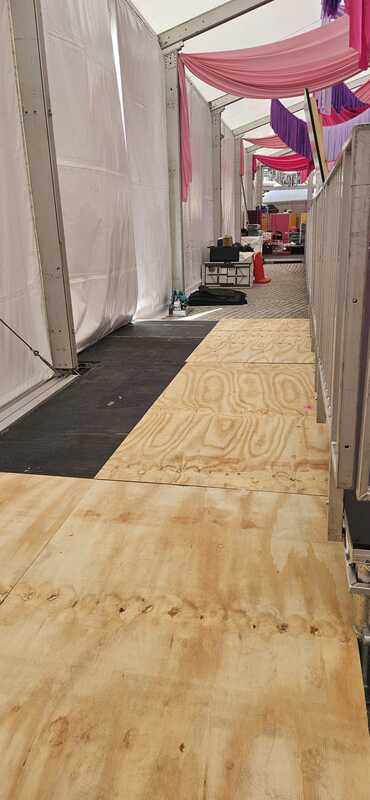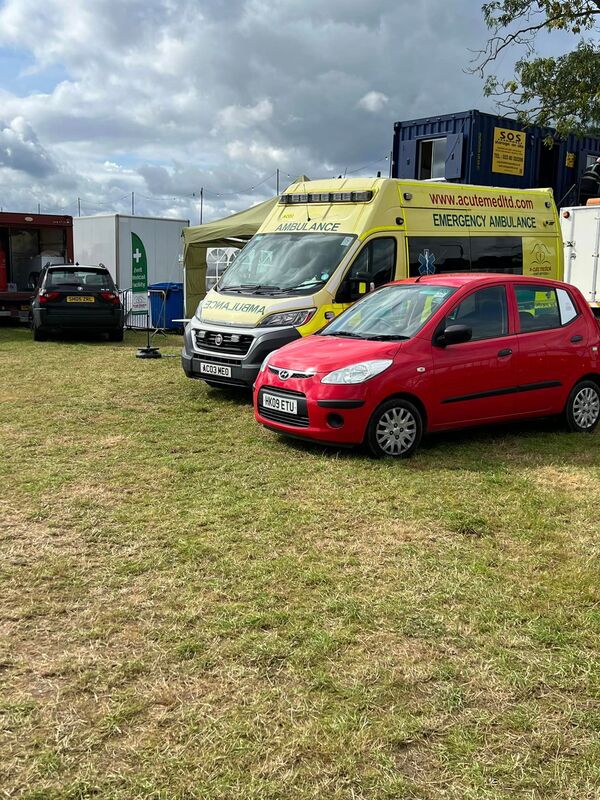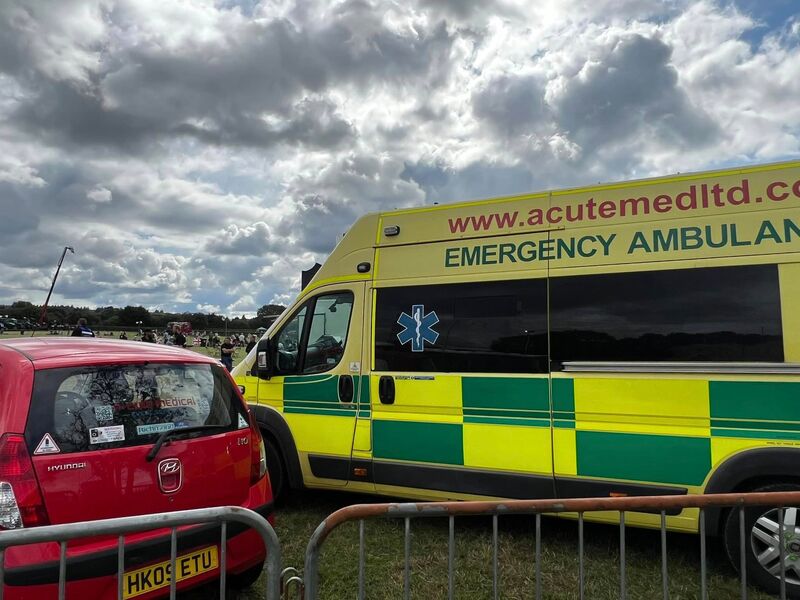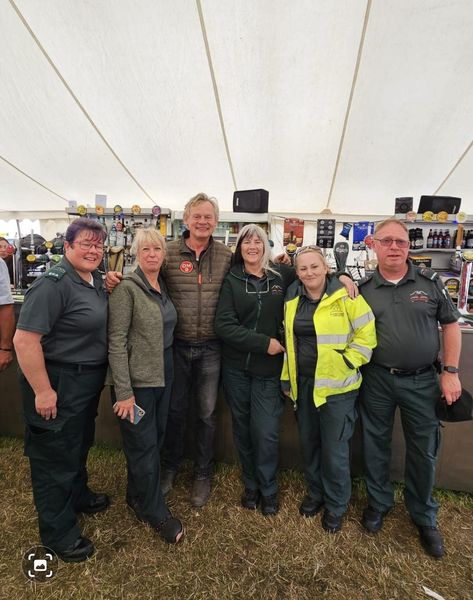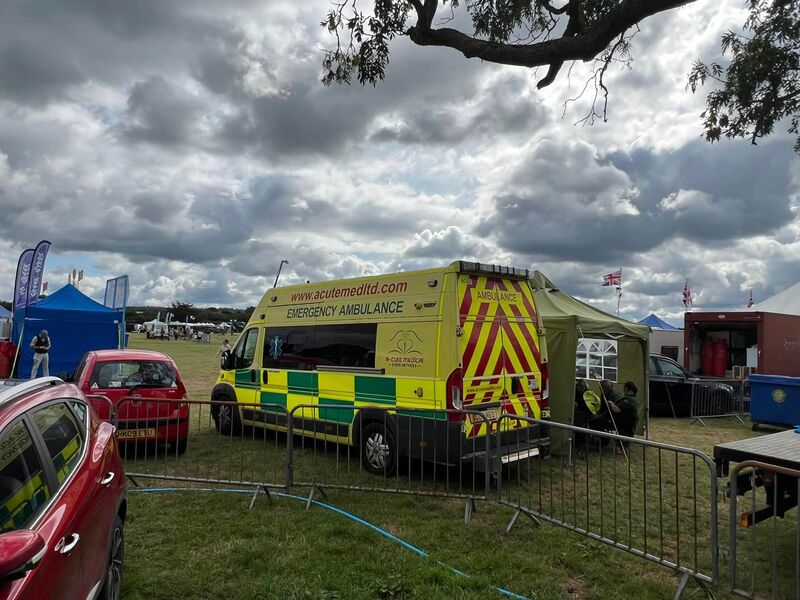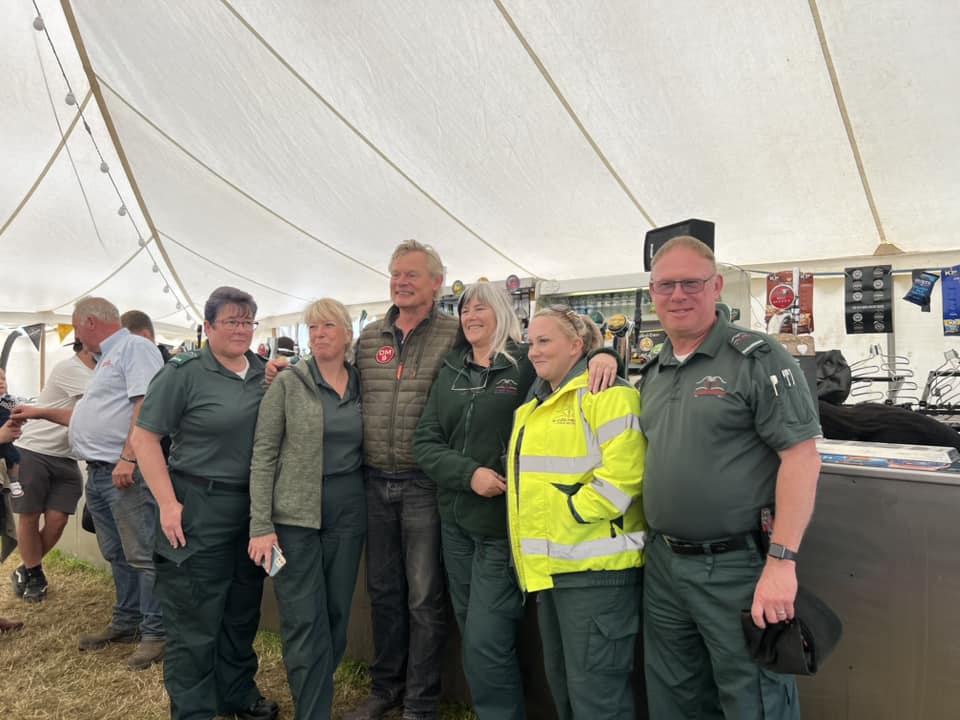Such an exciting time ahead. We have secured more contracts not just for 2024 but right through to 2026.
We have some really exceptional people working to enhance the events and training we are covering.
Events are nationwide and we now work with partner organisations from the boaders of Scotland right down to the south coast.
New contracts covering Cycling, Swimming and Running started in February and go through to October then a few months break before we start again in January.
Festival's we have secured contracts to cover 16 2 & 3 day festivals along with our existing contracts for festivals and concerts.
Power Boat racing, Sailing, local council projects, Private PTS transfers, Boxing, Wrestling and a number of high profile exhibitions and business AGM's. We are also supporting young people by offering work experience, training courses and even Ambulance Transport to their Prom.
We have found ourselves needing to recruit a number of new staff, ranging from Clinician to FREC. We have now around us a great team of professionals who's aim is to ensure the care and welfare of our patients and the confidence from our clients that we operate at a high clinical and professional standard.
We have some really exceptional people working to enhance the events and training we are covering.
Events are nationwide and we now work with partner organisations from the boaders of Scotland right down to the south coast.
New contracts covering Cycling, Swimming and Running started in February and go through to October then a few months break before we start again in January.
Festival's we have secured contracts to cover 16 2 & 3 day festivals along with our existing contracts for festivals and concerts.
Power Boat racing, Sailing, local council projects, Private PTS transfers, Boxing, Wrestling and a number of high profile exhibitions and business AGM's. We are also supporting young people by offering work experience, training courses and even Ambulance Transport to their Prom.
We have found ourselves needing to recruit a number of new staff, ranging from Clinician to FREC. We have now around us a great team of professionals who's aim is to ensure the care and welfare of our patients and the confidence from our clients that we operate at a high clinical and professional standard.
A-cute Medical are proud to be supporting Boats Life 2024 by providing the show medical cover at the NEC in Birmingham. A bigger, brighter and diverse show this year with some amazing exhibits some great people and a lot of helpful information to help people
to achieve affordable boating. Gill Shaw (www.gillshaw.co.uk) is here to promote the tranquillity and fun of canal boating and has some great stories and pictures to see and hear.
It’s a definite must visit for anyone interested in boating in an indoor environment.
Our training department has expanded with instructors delivering more and more courses, including FREC3, FREC4, Safeguarding, Mental Health First Aid EFAW, FAW and Student First Aid.
See our training academy tab for details of courses available. We hope to see you on one of the courses.
to achieve affordable boating. Gill Shaw (www.gillshaw.co.uk) is here to promote the tranquillity and fun of canal boating and has some great stories and pictures to see and hear.
It’s a definite must visit for anyone interested in boating in an indoor environment.
Our training department has expanded with instructors delivering more and more courses, including FREC3, FREC4, Safeguarding, Mental Health First Aid EFAW, FAW and Student First Aid.
See our training academy tab for details of courses available. We hope to see you on one of the courses.
A-Cute Medical are really excited about 2024 season of events. We have worked hard over the period since Covid 19 and have built great relationships with our clients and staff. 2023 was our 10th anniversary and the management team would like to express our gratitude to all of our staff for the professionalism, dedication and support given to A-cute medical over the years and for getting us to where we are now. We have had some great feedback from patients and clients alike
As part of the celebration we held our 10th anniversary and Christmas dinner together with around 60 members of staff able to join us. See the pictures on our FB account.
Moving in to 2024 we are proud to announce that we have secure new contracts covering Tri-Athlons, Running, Swimming, Cycling, Motor racing, Music and food festivals covering the south coast and in to London and the home counties.
This has been achieved due to the work of our staff through good practice, good communication, great patient care and delivering a seamless service. I can't thank them all enough.
As part of the celebration we held our 10th anniversary and Christmas dinner together with around 60 members of staff able to join us. See the pictures on our FB account.
Moving in to 2024 we are proud to announce that we have secure new contracts covering Tri-Athlons, Running, Swimming, Cycling, Motor racing, Music and food festivals covering the south coast and in to London and the home counties.
This has been achieved due to the work of our staff through good practice, good communication, great patient care and delivering a seamless service. I can't thank them all enough.
24th Sept 2023 | Southampton Boat Show Birthday Celebration for Mark our MD
"Today, we celebrate our Managing Director, Mark Weatherhead's birthday at the Southampton Boat Show. Despite the occasion, Mark's passion for the event shines bright. His presence sets an inspiring example of dedication and leadership. As our team gathers to wish him a happy birthday. Cheers to Mark and many more years of success!"
23rd Sept 2023 | Charities Walking Together
"Today, We had the privilege of covering an extraordinary event, "Charities Walking Together. This heart-warming gathering brought together eight remarkable children's charities: George's Trust, Abby's Heroes, Dylan's Quest, Alfie’s Wish's, Sophie's Appeal, George's Rockstars, The Isabel Baker Foundation, and Sophie's Legacy. These organizations share a common goal - making a positive impact in the lives of children and their families.
The occasion coincided with Childhood Cancer Awareness Month, amplifying its significance. Witnessing people from all walks of life unite to support these noble causes was inspiring. The smiles on every face and the palpable joy in the air made it a truly memorable day for everyone involved."
The occasion coincided with Childhood Cancer Awareness Month, amplifying its significance. Witnessing people from all walks of life unite to support these noble causes was inspiring. The smiles on every face and the palpable joy in the air made it a truly memorable day for everyone involved."
21st Sept 2023 | Evening of Relaxation after a shift at Southampton Boat Show
"Following a day dedicated to providing medical coverage at the Southampton Boat Show, our team gathered to unwind at Red Dog, where we indulged in the restaurant's exquisite offerings. The day had been filled with medical support and care, and this evening provided a well-deserved break."
16th Sept 2023 | Fawley Family Fun Day for ExxonMobil
"A-Cute Medical delivered essential First Aid services for a remarkable event, This event was showcasing various emergency service vehicles, including the awe-inspiring Air Ambulance. The event also had live music, classic cars, a lively fun fair, and a delectable array of food stalls, all providing a delightful experience for children and attendees alike."
9th Sept - 10th Sept 2023 | West Quay Art and Music Event
"This event not only drew in an abundance of local talent but also featured artists who journeyed from as far as Bristol, London, and Scotland to be a part of it."
30th Aug - 28th Sept 2023 | Southampton Boat Show
"We have a longstanding history of covering the Southampton Boat Show, and this year, our commitment remains strong. We've been on-site from the very beginning, witnessing the construction process, and we'll continue to be present throughout the entire event. Our team will also play a crucial role in overseeing the safe and efficient breakdown process, providing assistance for any medical treatments required.
In addition to our event responsibilities, it was an extra delight to witness the breathtaking spectacle of the Red Arrows soaring overhead."
In addition to our event responsibilities, it was an extra delight to witness the breathtaking spectacle of the Red Arrows soaring overhead."
15th Aug - 3rd Sept 2023 | West Quay Roller Land - Southampton
"The A-Cute Medical Team is on-site, ensuring the safety and well-being of everyone at Roller Land Southampton. We're thrilled to be here, supporting this event from setup to teardown. It's an absolute blast, and we invite you to join us, say hello, and try your hand at skating with the welcoming and friendly SK8hire Team."
25th Aug - 27th Aug 2023 | Fordingbridge Steam & Vintage Fest
"Our team is once again on duty, providing First Aid coverage at the Fordingbridge Steam and Vintage Fest. We have a diverse team of highly skilled medical professionals on-site, prepared to respond to any incident.
As a delightful bonus, our team had the privilege of capturing a photo with the fantastic Doc Martin."
As a delightful bonus, our team had the privilege of capturing a photo with the fantastic Doc Martin."
ASSESSING THE MEDICAL COVER NEEDED AT AN EVENT
5.4 Every event is unique and medical presentations may be influenced by a range of factors including:
5.6 Four tiers of events may be considered each requiring a different level of medical
TIER 1
5.7 Tier 1 events are the smallest and simplest events, some of which may not fall within the scope of local authority licensing.
Indicators that an event is in tier 1 include:
Cover level
Tier 1 events are normally suitable for a first aid service and do not need a healthcare professional or an ambulance to attend.
In some cases, organisers might not need a dedicated first aid resource, but should still consider how to provide first aid if the need arises, and should particularly consider:
5.8 Tier 2 events are somewhat larger events which often fall within the scope of local authority licensing.
Indicators that an event is in Tier 2 include any one of the following:
Cover level
Tier 2 events will normally need a dedicated first aid resource, led by a healthcare professional.
Provision should include:
5.9 Tier 3 are normally middle-sized
Indicators that an event is in Tier 3 include any one of the following:
Cover level
Tier 3 events will always need a dedicated medical resource.
Provision should include:
5.10 Tier 4 are the largest or most complex events, including all mass gatherings, as well as smaller events that have higher risks.
Indicators that an event is in Tier 4 include any one of the following;
Tier 4 events always need a dedicated medical resource.
Provision should include:
5.12 Prospective medical providers should submit a specific medical Risk Assessment & Method Statement (RAMS) which should be used to determine the extent and level of cover required. This will then be used to create a detailed Medical Plan.
REMEMBER: Every event should have an appropriate level of medical cover set out in a medical plan, containing a medical RiskAssessment, and a Method Statement (RAMS)
CHOOSING A MEDICAL PROVIDER
5.13 Organisers should ensure that the provider has the skills, experience and resources needed to provide safe and effective It is good practice to take up references from other organisers who have used the provider.
5.14 Medical teams should be able to manage a wide range of medical, trauma and mental health presentations, including substance misuse and chronic conditions.
5.15 Organisers should ensure that the provider is appropriately insured. This should include:
This should include:
5.17 In England, ambulance services undertaking off-site transfers must be registered with the Care Quality Commission for the provision of such services.
5.18 Organisers should ensure that the provider has the capability to move patients safely around the site using equipment or a vehicle that is fit for purpose.
REMEMBER: Medical providers vary in capability and experience. Event organisers should exercise due diligence in selecting one that is competent and reliable Paramedic/Specialist Practitioner
k here to edit.
5.4 Every event is unique and medical presentations may be influenced by a range of factors including:
- the nature of the event
- the numbers of people attending
- the history of the event
- the age profile
- the activities on site
- environmental conditions
5.6 Four tiers of events may be considered each requiring a different level of medical
TIER 1
5.7 Tier 1 events are the smallest and simplest events, some of which may not fall within the scope of local authority licensing.
Indicators that an event is in tier 1 include:
- fewer than 500 attendees
- no or minimal alcohol consumption
- no or minimal recreational drug use
- no activities which have a risk of injury
- hospital referrals very unlikely
- duration of a few hours or less
Cover level
Tier 1 events are normally suitable for a first aid service and do not need a healthcare professional or an ambulance to attend.
In some cases, organisers might not need a dedicated first aid resource, but should still consider how to provide first aid if the need arises, and should particularly consider:
- Provision of a suitable first aid kit
- Access to a defibrillator
- Ensuring that appropriate people know how to access emergency assistance
5.8 Tier 2 events are somewhat larger events which often fall within the scope of local authority licensing.
Indicators that an event is in Tier 2 include any one of the following:
- more than 500 but fewer than 2,000 attendees
- social drinking of alcohol
- no more than isolated drug use
- low risk of any injury from activities
- hospital referrals unlikely
- duration no longer than a day
Cover level
Tier 2 events will normally need a dedicated first aid resource, led by a healthcare professional.
Provision should include:
- a clinical lead, often a healthcare professional (such as a paramedic) supported by first responders
- one or more ambulances with suitably qualified crew, where indicated by the medical risk assessment
5.9 Tier 3 are normally middle-sized
Indicators that an event is in Tier 3 include any one of the following:
- more than 2000 but fewer than 10,000 attendees
- alcohol intoxication likely
- drug intoxication likely
- moderate risk of injury from activities
- hospital referrals likely
- duration several days (no camping)
Cover level
Tier 3 events will always need a dedicated medical resource.
Provision should include:
- A clinical lead, who should be a healthcare professional
- healthcare professionals, such as doctors, paramedics and nurses
- First responders
- In most cases, one or more ambulances with suitably qualified crew
5.10 Tier 4 are the largest or most complex events, including all mass gatherings, as well as smaller events that have higher risks.
Indicators that an event is in Tier 4 include any one of the following;
- 10,000 or more attendees
- frequent alcohol intoxications expected
- frequent drug intoxications expected
- high risk of injuries
- referrals to hospital expected
- camping
Tier 4 events always need a dedicated medical resource.
Provision should include:
- a clinical lead, who should be a doctor, preferably one with emergency medicine experience
- healthcare professionals, including doctors, nurses and paramedics
- first responders
- ambulances with suitably qualified crew
- control staff
5.12 Prospective medical providers should submit a specific medical Risk Assessment & Method Statement (RAMS) which should be used to determine the extent and level of cover required. This will then be used to create a detailed Medical Plan.
REMEMBER: Every event should have an appropriate level of medical cover set out in a medical plan, containing a medical RiskAssessment, and a Method Statement (RAMS)
CHOOSING A MEDICAL PROVIDER
5.13 Organisers should ensure that the provider has the skills, experience and resources needed to provide safe and effective It is good practice to take up references from other organisers who have used the provider.
5.14 Medical teams should be able to manage a wide range of medical, trauma and mental health presentations, including substance misuse and chronic conditions.
5.15 Organisers should ensure that the provider is appropriately insured. This should include:
- public liability insurance
- medical indemnity insurance
- employer's liability insurance
- fleet insurance for vehicles (where appropriate)
This should include:
- data protection
- safeguarding
- infection prevention and control
- criminal records check
5.17 In England, ambulance services undertaking off-site transfers must be registered with the Care Quality Commission for the provision of such services.
5.18 Organisers should ensure that the provider has the capability to move patients safely around the site using equipment or a vehicle that is fit for purpose.
REMEMBER: Medical providers vary in capability and experience. Event organisers should exercise due diligence in selecting one that is competent and reliable Paramedic/Specialist Practitioner
k here to edit.
Training course dates
March 13th - 17th FREC3 - FAW - EFAW courses
April 17th - 21st FREC3 - FREC4 - FREC requalification
April 24th - 28th FAW - EFAW - Safeguarding - C1 Driver Training
May 15th - 19th FAW - EFAW - C1 Driver Training
May 22nd - 24th FAW
May 25th - 26th EFAW
June 05th - 09th FREC3 - FAW - EFAW - C1 Driver Training
June 19th - 23rd FREC3 - FREC4 - C1 Driver Training
June 26th - 30th FREC3 - FREC4 - C1 Driver Training
JULY 10th - 14th FAW - EFAW - C1 Driver Training
August 07th - 11th FREC3 FREC4 C1 Driver training
August 21st - 25th FAW - EFAW - FREC3 - FREC4 - C1 Driver training
September 04th - 08th - FREC Requalification EFAW
October TBA
November TBA
March 13th - 17th FREC3 - FAW - EFAW courses
April 17th - 21st FREC3 - FREC4 - FREC requalification
April 24th - 28th FAW - EFAW - Safeguarding - C1 Driver Training
May 15th - 19th FAW - EFAW - C1 Driver Training
May 22nd - 24th FAW
May 25th - 26th EFAW
June 05th - 09th FREC3 - FAW - EFAW - C1 Driver Training
June 19th - 23rd FREC3 - FREC4 - C1 Driver Training
June 26th - 30th FREC3 - FREC4 - C1 Driver Training
JULY 10th - 14th FAW - EFAW - C1 Driver Training
August 07th - 11th FREC3 FREC4 C1 Driver training
August 21st - 25th FAW - EFAW - FREC3 - FREC4 - C1 Driver training
September 04th - 08th - FREC Requalification EFAW
October TBA
November TBA
January 2023
Dates for training courses for 2023 are now published. These courses can be booked through our Academy and cover FREC3, FREC4, FREC requalification, FAW, EFAW, Safeguarding and various driving courses as required.
Dates for training courses for 2023 are now published. These courses can be booked through our Academy and cover FREC3, FREC4, FREC requalification, FAW, EFAW, Safeguarding and various driving courses as required.
January 2023
The office is now fully operational with the team settling in to their new roles and responsibilities. We now have a facilities management contract with Cleartrace Limited working with our new logistics manager to ensure the stores, vehicles and premises are compliant with, and hopefully above, the standards set by the CQC.
We have new workstreams coming online for 2023 and for this we have been very active in recruitment for both operational staff and training staff.
The office is now fully operational with the team settling in to their new roles and responsibilities. We now have a facilities management contract with Cleartrace Limited working with our new logistics manager to ensure the stores, vehicles and premises are compliant with, and hopefully above, the standards set by the CQC.
We have new workstreams coming online for 2023 and for this we have been very active in recruitment for both operational staff and training staff.
December 2022
We are happy to announce that we have moved into new premises in Ashurst - New Forest, and with this we are committed to expand our services across all areas of the company. The new premises allows our training academy to have scope to develop and grow as well as for us to be able to better facilitate our crews and management team in their roles.
We are happy to announce that we have moved into new premises in Ashurst - New Forest, and with this we are committed to expand our services across all areas of the company. The new premises allows our training academy to have scope to develop and grow as well as for us to be able to better facilitate our crews and management team in their roles.
November 2022
We have multiple resources out this year on firework night across Hampshire and Dorset. If you see us, come and say hello!
We have multiple resources out this year on firework night across Hampshire and Dorset. If you see us, come and say hello!
October 2022
We have some exciting developments and news coming! Stay tuned on our facebook and website to keep up to date as things develop.
We have some exciting developments and news coming! Stay tuned on our facebook and website to keep up to date as things develop.
October 2022
A-cute is happy to relaunch it's website with new features and services to strengthen us as a company and better support the event services industry. We also welcome Tom and Paul to the leadership team here at A-cute Event Medical Services; both Tom & Paul have extensive experience in the Ambulance Service and Event Medical industry and are keen to drive the company forward. We wish them a warm welcome to the team.
16-09-2022 to 25-09-2022
A-cute where proud to be event medical provider for the annual Southampton International Boat Show.
15-08-2022 to 04-09-2022
A-cute where proud to be event medical provider for the annual Southampton Roller Disco
23-05-2022 to 16-06-2022
A-cute where proud to be event medical provider for Tour De Moon.
01-04-2022
A-cute are proud to be working alongside British Marine at St Katherines Dock London for the London Luxury Afloat show from the 21st April. A-cute"s Training team have this week been successful in getting one of our staff through the first part of their C1 driving test. They are booked in for the final driving test this coming Tuesday.
24-03-2-22
A-cute are proud to have been able to assist the amazing work being carried out in the Ukraine by those medical staff working on the frontline throughout the conflict with Russia. In conjunction with Thurston Sign and Clothing we have been able to send out vital medical equipment and medicines to help the war effort. The team left this week heading for the Ukraine. We wish them safe journey and to those caught up in the conflict we hope for an early resolution to the unnecessary war.
12-03-2022
In line with the CQC regulations A-cute Medical have contracted in for it's staff a company called Freedom to Speak. This gives our staff a portal to contact if they have any concerns regarding the practice and safety of the company. We as a business welcome this as our staff and patients are our priority. We hope that Freedom to Speak services are never needed but are very happy that they are there to support our staff and ultimately the people we care for.
01-03-2022
A-cute Medical announces its new Training centre. We are offering the FREC 3 , C1 Driving and FREC 4 courses starting in May 2022. This will give candidates an entry level qualification in to the rewarding world that is the Ambulance service.
HSE releases annual injury and ill-health statistics
The number of injuries and incidents of ill-health in workplaces across Great Britain is still too high, new statistics for 2018/19 show.
The statistics included the following key annual figures (2018/19):
ISO20121
A-cute has been working towards attaining ISO20121 sustainability for the event industry. As of November 2017 we have been advised that we are compliant with the standard and ready to move to the next stage of certification which will need us being inspected.
Growing its portfolio of contracts and with new customers being happy with the services we provide we have gained registration with the Care Quality Commission (CQC). We became registered in August 2017 Our two new vehicles are working hard at events and festivals. January started with a repatriation from Romanian to the East Midlands. We have also been providing staff to cover A&E departments to help hospital emergency department to reduce the Ambulance waiting times.
A-cute is happy to relaunch it's website with new features and services to strengthen us as a company and better support the event services industry. We also welcome Tom and Paul to the leadership team here at A-cute Event Medical Services; both Tom & Paul have extensive experience in the Ambulance Service and Event Medical industry and are keen to drive the company forward. We wish them a warm welcome to the team.
16-09-2022 to 25-09-2022
A-cute where proud to be event medical provider for the annual Southampton International Boat Show.
15-08-2022 to 04-09-2022
A-cute where proud to be event medical provider for the annual Southampton Roller Disco
23-05-2022 to 16-06-2022
A-cute where proud to be event medical provider for Tour De Moon.
01-04-2022
A-cute are proud to be working alongside British Marine at St Katherines Dock London for the London Luxury Afloat show from the 21st April. A-cute"s Training team have this week been successful in getting one of our staff through the first part of their C1 driving test. They are booked in for the final driving test this coming Tuesday.
24-03-2-22
A-cute are proud to have been able to assist the amazing work being carried out in the Ukraine by those medical staff working on the frontline throughout the conflict with Russia. In conjunction with Thurston Sign and Clothing we have been able to send out vital medical equipment and medicines to help the war effort. The team left this week heading for the Ukraine. We wish them safe journey and to those caught up in the conflict we hope for an early resolution to the unnecessary war.
12-03-2022
In line with the CQC regulations A-cute Medical have contracted in for it's staff a company called Freedom to Speak. This gives our staff a portal to contact if they have any concerns regarding the practice and safety of the company. We as a business welcome this as our staff and patients are our priority. We hope that Freedom to Speak services are never needed but are very happy that they are there to support our staff and ultimately the people we care for.
01-03-2022
A-cute Medical announces its new Training centre. We are offering the FREC 3 , C1 Driving and FREC 4 courses starting in May 2022. This will give candidates an entry level qualification in to the rewarding world that is the Ambulance service.
HSE releases annual injury and ill-health statistics
The number of injuries and incidents of ill-health in workplaces across Great Britain is still too high, new statistics for 2018/19 show.
The statistics included the following key annual figures (2018/19):
- 1.4 million working people suffering from a work-related illness
- 147 workers killed at work
- 581,000 injuries occurred at work according to the Labour Force Survey
- 2 million working days lost due to work-related illness and workplace injury
- £15 billion estimated cost of injuries and ill health from current working conditions (2016/17)
ISO20121
A-cute has been working towards attaining ISO20121 sustainability for the event industry. As of November 2017 we have been advised that we are compliant with the standard and ready to move to the next stage of certification which will need us being inspected.
Growing its portfolio of contracts and with new customers being happy with the services we provide we have gained registration with the Care Quality Commission (CQC). We became registered in August 2017 Our two new vehicles are working hard at events and festivals. January started with a repatriation from Romanian to the East Midlands. We have also been providing staff to cover A&E departments to help hospital emergency department to reduce the Ambulance waiting times.
